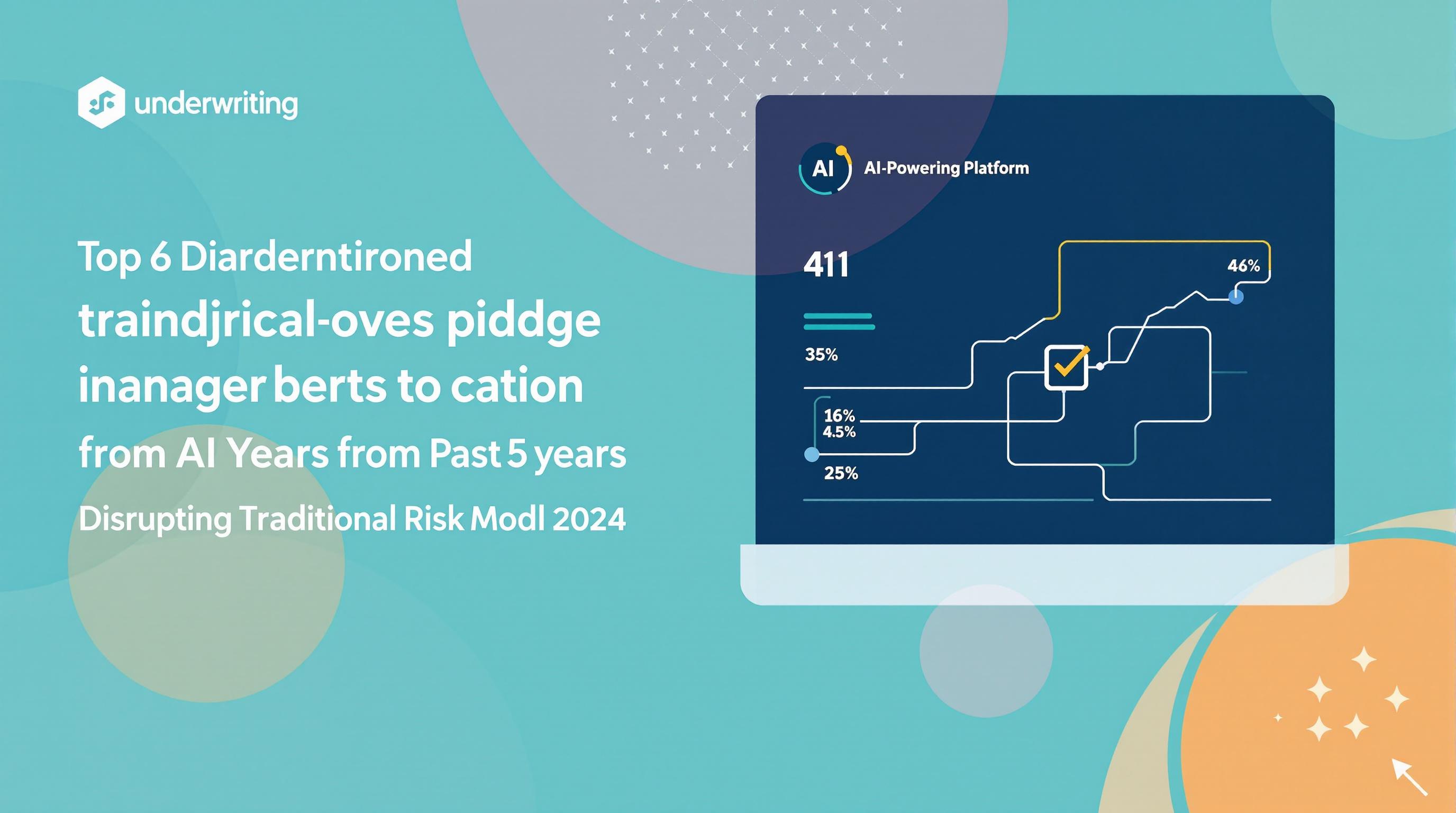Related Articles
- Top 6 AI-Powered Underwriting Platforms from the Past 5 Years Disrupting Traditional Risk Models in 2024
- How Uncommon Insurance Amendments Influence Unexpected Claims and Shape Policyholder Behavior in Quiet Corners
- 7 Underrated Indexed Insurance Products from the Last 5 Years That Outsmart Traditional Plans
- Unveiling the Role of Universal Life Insurance in Protecting Digital Legacies and Cryptocurrency Estates
- Top 6 Under-the-Radar Group Insurance Plans Since 2019 Redefining Employer and Employee Value
- How Childhood Genetics Influence Insurance Premiums and What Parents Rarely Know About Policy Risks
12 Essential Insurance Underwriting FAQ Answers to Navigate Policy Approval Like a Pro in 2024
12 Essential Insurance Underwriting FAQ Answers to Navigate Policy Approval Like a Pro in 2024
12 Essential Insurance Underwriting FAQ Answers to Navigate Policy Approval Like a Pro in 2024
1. What is Insurance Underwriting?
Insurance underwriting is the process by which insurers assess the risk of insuring a person or entity and decide whether to provide coverage, and under what terms.
This process involves evaluating application data, financial records, health information, and other pertinent factors to determine risk levels.
Effective underwriting ensures that insurance companies offer policies that balance risk and profitability, benefiting both insurers and policyholders.
2. How Has Technology Impacted Underwriting in 2024?
In 2024, technology such as artificial intelligence (AI) and data analytics has significantly transformed underwriting by speeding up risk assessment.
Insurers now use AI-driven models to analyze large datasets for more accurate predictions, reducing human error and bias.
This shift leads to faster policy approvals and more personalized coverage options for applicants, enhancing customer satisfaction.
3. What Documents Are Typically Required for Underwriting?
Applicants should prepare key documents like proof of identity, medical records, financial statements, and previous insurance policies.
These documents provide underwriters with comprehensive information necessary to assess risks accurately and set appropriate premiums.
Providing complete and honest documentation can speed up the underwriting process and prevent delays.
4. How Long Does the Underwriting Process Take?
The underwriting duration varies depending on the policy type and complexity of the applicant's profile.
Standard policies may be approved within a few days, while complex cases involving detailed health assessments can take several weeks.
Technological advancements, however, are progressively shortening these timelines, making approvals quicker in 2024.
5. What Factors Influence Underwriting Decisions?
Underwriters consider multiple factors including age, health status, occupation, lifestyle habits, and financial stability.
Each factor impacts the risk evaluation; for example, tobacco use or hazardous jobs typically increase premiums or lead to exclusions.
Understanding these factors empowers applicants to make informed decisions to improve their insurability.
6. Can Applicants Appeal a Denied Underwriting Decision?
Yes, most insurance companies allow applicants to appeal if their policy application is denied during underwriting.
The appeal process usually involves submitting additional documentation or clarification to address underwriting concerns.
Applicants should act promptly and consult with insurance agents or legal advisors to strengthen their case.
7. How Does Underwriting Differ Between Life and Property Insurance?
While both types assess risk, life insurance underwriting focuses on the applicant's health, lifestyle, and mortality risk.
Property insurance underwriting evaluates the physical condition, location, and security measures of the property.
Each process uses specialized criteria tailored to the unique risks associated with the policy type.
8. What Role Does Risk Classification Play in Underwriting?
Risk classification categorizes applicants into groups based on their assessed level of risk, impacting premium rates and coverage availability.
Higher-risk applicants may face increased costs or limited policy options to compensate for the insurer's potential losses.
This systematic approach helps maintain financial stability for insurers and fair pricing for policyholders.
9. Are There Regulatory Guidelines Governing Underwriting?
Yes, insurance underwriting is regulated to prevent discrimination and ensure fairness according to laws like the Fair Credit Reporting Act (FCRA).
Insurers must comply with state and federal regulations that govern data usage, privacy, and non-discriminatory practices.
Applicants have the right to receive explanations for adverse decisions, fostering transparency in the underwriting process.
10. How Can Applicants Prepare to Improve Their Underwriting Outcome?
Applicants should maintain healthy lifestyles, keep accurate records, and be transparent during the application process.
Reviewing credit reports, resolving outstanding financial issues, and seeking professional advice can also strengthen applications.
Preparation and proactive communication with insurers can make the underwriting process smoother and increase chances of approval.
Sources:
Insurance Information Institute: https://www.iii.org/article/what-is-underwriting
National Association of Insurance Commissioners: https://content.naic.org/cipr-topics/underwriting
Forbes – How AI Is Changing Insurance Underwriting: https://www.forbes.com/sites/forbestechcouncil/2023/09/18/how-ai-is-transforming-insurance-underwriting/




